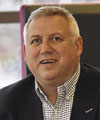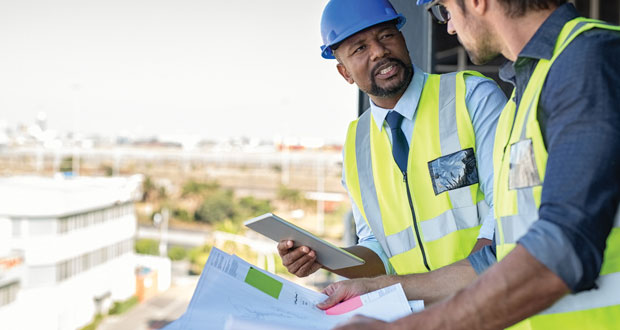 Jim Darragh, Chief Executive Officer at Totalmobile explains to Sara Bean why the technology needs to better reflect the needs of field operatives
Jim Darragh, Chief Executive Officer at Totalmobile explains to Sara Bean why the technology needs to better reflect the needs of field operatives
Over the last six months the need to equip FM field operatives with the most efficient digital mobile tools has never been more crucial to help ensure continuity of service while maintaining social distancing. This is a space where Totalmobile, specialists in field service management and mobile workforce software solutions can offer their expertise, but surprisingly up until now the firm hasn’t had a high profile in FM, despite being around since the 1980s.
Explains Jim Darragh, Chief Executive Officer at Totalmobile: “The firm was born and bred in Belfast, beginning with delivering solutions for local councils, which migrated to managing social housing repairs. As mobility became more prevalent within the housing space, we got one of our technical experts to build us mobility tools in earnest and the company pivoted and became more about mobile workforces and mobile workforce management.
“As the tech has matured the market has matured alongside and we’ve now got quite a critical mass, with local government bleeding into social care and healthcare, to encompass housing associations, hospitals and transport customers, a lot of which is outsourced to FM. This all links to FM services delivery for properties and so on. Our mobility has become a part of the FM offering and we bring something different to the providers in that space.”
The difference he believes is that the technology is designed from the ground up with the mobile worker in mind, “a subtle statement but one which means quite a lot to us.” He explains that quite often the technology mobile workers are given is just a version of a back-office system. They may be linked in to a CAFM system which has a mobile element that is adjusted for field workers, but in practise it means taking a back-office system and porting it into a mobile device.
He says: “We’re coming from the opposite direction, saying ‘you’re a mobile worker, what will make your life easier?’ We will allow you to be more efficient. You’ll need data from the back office but we won’t start with that. Instead we’ll say, ‘you’re going out to the field today what do you need from us to do your work?’
“Because we think of mobile workers first – that’s what makes us different. We’re also very customer centric so in any conversation with a client we’ll make them think about what their before and their after will look like. It’s not part of the sales process it’s part of the value add.”
While it is to be hoped that maintenance teams are no longer using time sheets, there are some organisations that are only now migrating over to digital platforms. The duel benefit is making individuals and groups of people more efficient – particularly when it comes to the scheduling of works.
Says Darragh: “We think the digital mobility piece gives you 20 per cent more efficiency but the second [scheduling] one gets you another, and 40 per cent more efficiency equates to two extra days a week.”
Any piece of tech is only as good as its usability so how do front-line operatives tend to cope with new mobile solutions?
“The user interface is essential as we live or die by user adoption”, says Darragh. “Because the tools are designed for the mobile user, and are adapted to work with Apple and Google we’re ensuring someone can pick it up and almost instinctively navigate their way round the system. It’s not designed to fox people, it’s designed to help them.”
He cites cleaning as one example. Totalmobile equipped Mitie cleaning staff with smart watches that alerted them with a buzz when a room needed to be cleaned. By double tapping the app, the cleaners indicated they were on their way, and a triple tap meant that the job had been done. Both basic but useful.





